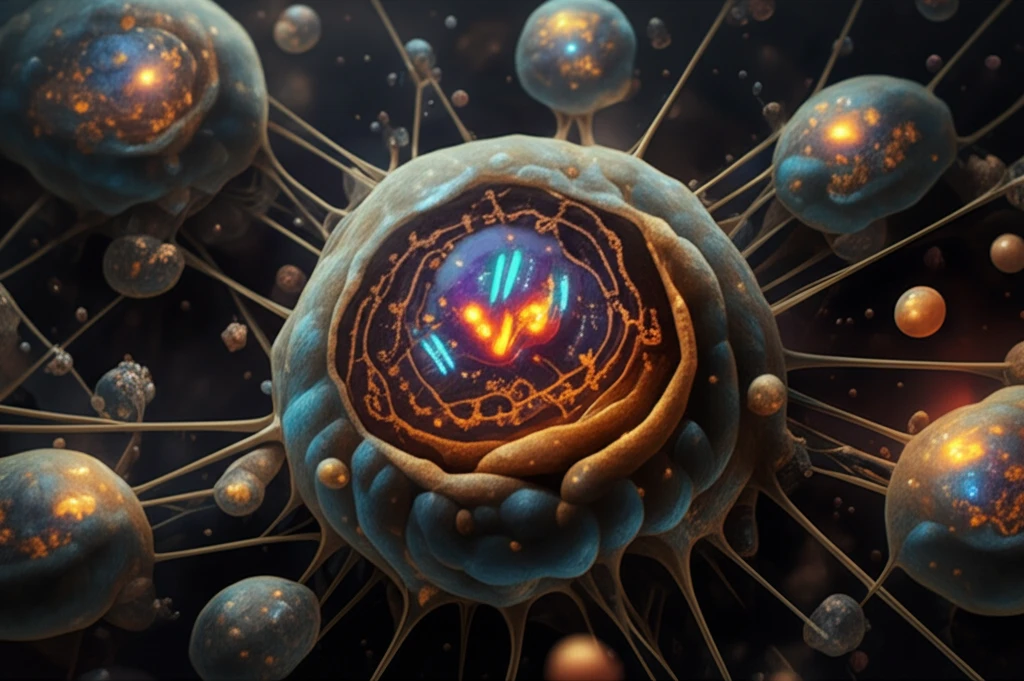
Unlocking Cellular Secrets: How VMP1 Could Revolutionize Our Fight Against Cancer and Diabetes
"Delve into the groundbreaking research on VMP1, a protein revealing new pathways in autophagy and offering potential therapeutic targets for pancreatic cancer, acute pancreatitis, and diabetes."
In the intricate world of cell biology, autophagy—the process by which cells clean out damaged components—is crucial for maintaining health and preventing disease. Scientists are constantly seeking to understand the key players in this process, and one protein, VMP1 (vacuole membrane protein 1), has emerged as a fascinating and potentially game-changing molecule.
Originally identified for its role in acute pancreatitis, VMP1 is now recognized as a critical regulator of autophagy, influencing everything from cancer cell survival to the development of diabetes. New research is highlighting its complex functions and hinting at novel therapeutic strategies for a range of challenging conditions.
This article will help to break down the science behind VMP1, exploring its functions, its implications for various diseases, and the potential for future treatments.
VMP1: The Master Regulator of Autophagy

VMP1, or vacuole membrane protein 1, acts as a central coordinator in the autophagy process. Autophagy is like a cellular recycling program, where cells break down and remove damaged proteins and organelles. This process is essential for maintaining cellular health and preventing the buildup of toxic substances. VMP1 is a transmembrane protein, meaning it spans the cell membrane, and it plays a crucial role in forming autophagosomes—the structures that engulf cellular waste during autophagy.
- Triggers autophagy even under nutrient-rich conditions
- Essential for autophagosome development
- Interacts with Beclin 1, a key autophagy regulator
- Involved in selective autophagy processes like zymophagy
The Future of VMP1 Research: New Hope for Treatment
VMP1 research is opening new avenues for treating diseases like pancreatic cancer and diabetes. By modulating VMP1 activity, scientists hope to develop targeted therapies that can restore healthy autophagy function, prevent cell death, and reduce inflammation. The potential impact of these discoveries could be revolutionary, offering new hope for patients and transforming the landscape of modern medicine. Future research will focus on refining these therapeutic strategies and bringing them to clinical trials.
